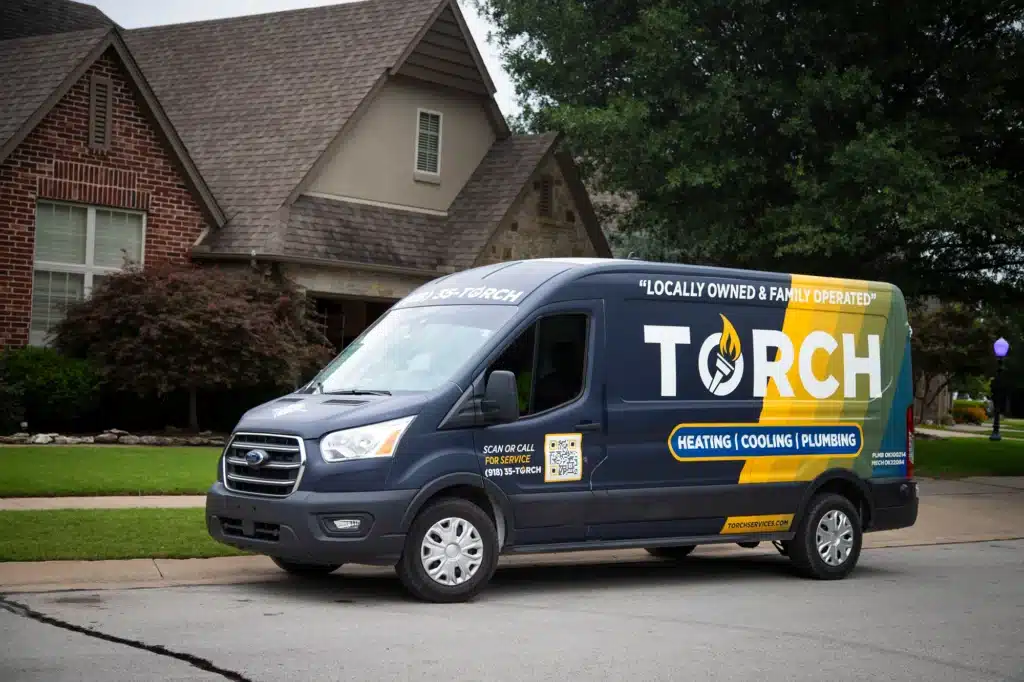Top DIY Plumbing Maintenance Tips to Prevent Leaks in Tulsa, OK
Still Locally Owned
STILL LOCALLY OWNED
Unlike others who may prioritize profits over people, our focus is on serving the community that has supported us and helped us grow.
KNOW YOUR OPTIONS
We will answer any questions you may have and provide you with complete information so you can make the best decision for you and your home.
COMPETITIVE PRICING
Don’t break the bank after an emergency. Our competitive pricing system gives you the peace of mind knowing we have the best rates in town.

Plumbing maintenance and problems aren’t always things homeowners should take on by themselves, but there are plenty of DIY leak-prevention measures you can take around the house to keep your plumbing from needing Tulsa repiping services.
If you have leak problems or just want to make sure your plumbing stays healthy, here are some great maintenance ideas.
Call (918) 376-6664
1. Lower Water Pressure to Protect Pipes
Water pressure can actually do a great deal of damage, especially to older or damaged pipes. To understand this, just think of how much damage a pressure washer could cause if you were to aim it at the wrong surface.
Inside your pipes, high-pressure water can damage pipes, joints, and even faucets and appliances. To prevent damage and leaks, keep the pressure below 80 psi.
2. Take Steps to Prevent Corrosion
Corrosion is one of the leading causes of weakness and leaks in plumbing systems, so taking care to prevent it can save you time and money. However, Torch Plumbing, Heating, & Cooling is here for emergency plumbing in Tulsa.
There are quite a few things that can corrode your pipes, so we’ll go over the most common ones and how you can avoid them:
- Iron deposits: A common source of iron deposits in your water is your water heater, and you can prevent this by changing the water heater anode rod every five years.
- High-acid water: Acid can corrode just about anything, and if your water pH is lower than 6.5, it could be eating away at your pipes. The best way to correct this is with a soda ash feeder or a calcite neutralizer tank.
- Bacteria: It’s not uncommon for bacteria to be present in water, but some of these bacteria can corrode your pipes. The best way to stop this is by installing a filter that will remove bacteria from your water before it enters your house.
- Stagnation: Water will naturally corrode metal if there’s oxygen present, so if you don’t use your water for lengthy periods of time, standing water that’s left in the pipes can cause corrosion. To prevent this, make sure you run your water regularly, or shut off the water and bleed the pipes if you’re going away.
3. Avoid Using Harsh Chemical Drain Cleaners to Remove Clogs
Clearing clogs in your drains the right way is probably the easiest thing you can do to prevent leaks.
The problem with harsh chemical drain cleaners is that they can erode metal and PVC pipes, making them more fragile and likely to develop a leak.
Along with weakening the pipes (which could lead to problems down the road), the chemicals can even eat right through the pipes and create holes that water can freely leak from.
4. Learn to Identify Leaks and Be Proactive About Searching
To stay on top of problems in your plumbing system, it’s a good thing to be able to identify leaks. The best place to start is by checking your water meter reading and then waiting two hours before using water again.
Then, check the reading again to see if there’s been a change: if there has, it’s time to get your leak detection on. Start with visible pipes, faucets, toilets, and other leak sources. After that, check for wetness, warping, and discoloration on walls, ceilings, and floors.
Knowing how to identify and detect leaks around the house and taking care of these Tulsa plumbing maintenance issues will ensure your plumbing stays leak-free. Along with making sure you don’t have floods and major plumbing problems to deal with down the road, this will also ensure your family has access to water when they need it, and keep your plumbing system in overall good health. Give the team at Torch Plumbing, Heating, & Cooling a call today to get started!